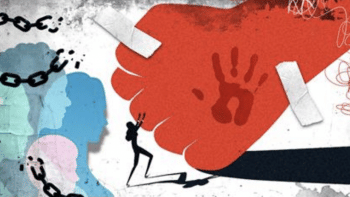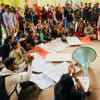Can Bangladesh prosper without gender equality?

"Discriminatory social norms significantly hinder women's success in education, careers, and personal development"—this sentiment was just one of the many challenges highlighted during our recent youth-led dialogues on gender equality at the workshop "Breaking Barriers, Designing Equality." The dialogues aimed to facilitate a platform for youth engagement and to foster innovative thinking while co-designing normative dialogue messages to advance gender equality in Bangladesh.
While issues like gender-based violence, domestic violence, child marriage, lack of economic empowerment, and limited participation of women in decision-making may seem well-known, they were repeatedly identified as major barriers during the workshop. This persistent emphasis suggests that there is still a long way to go in reversing these norms, highlighting the need for a reassessment of ongoing efforts.
A robust legal and policy framework is essential for achieving gender equality, and more work is needed in Bangladesh regarding legal reform. However, meaningful change is unattainable if society continues to accept specific practices, even when laws exist to counter them. Thus, changing social norms is critical as well.
According to the UN Women's "Gender Equality and Women's Empowerment in Bangladesh: A Situation Analysis" (2022), societal attitudes often do not treat girls and women equally, placing disproportionate emphasis on their caregiving and reproductive roles. This can partly explain why many women are denied the academic and professional opportunities they deserve. Participants extensively discussed the discriminatory attitudes within families and society, affecting every aspect of women's lives—from their choice of study subjects to professional success. Social norms also contribute to child marriage and gender-based violence.
Participants emphasised the importance of involving religious leaders in the movement for gender equality. These leaders hold significant influence over the values and decisions of large sections of society, making their engagement crucial in driving change.
In addition to challenges related to social norms and religious influences, young people highlighted emerging issues like increased vulnerabilities due to the climate crisis and limited participation of women in science, technology, engineering and mathematics (STEM) fields.
While women in Bangladesh are making progress in education and contributing meaningfully across various sectors, gender-based violence, sexual abuse and harassment remain pervasive. The lack of safety and protection for women and girls is a severe societal issue, exacerbated by limitations in bringing perpetrators to justice. Despite changes in individual agency among women, structural changes are necessary. Societal views on women must evolve to enable their full social, economic and political empowerment.
Gender equality is not only important at an individual level, but also critical for any country's social and economic development. A series of research point to the fact that gender equality is a powerful catalyst for poverty reduction and an important driver for sustainable development. Research from the International Monetary Fund (IMF) suggests that narrowing the gender gap in labour markets could increase GDP in emerging markets and developing economies by almost eight percent.
During the workshops, young participants identified stakeholders including government departments, civil society, media, community groups, religious leaders, and family members who are important in bringing changes. This demonstrates that each segment of society should perform their responsibilities effectively to achieve gender equality.
Gender equality work is not solely about girls and women. Misconceptions that gender initiatives only benefit women and girls also need to be addressed. There is limited understanding that gender stereotyping negatively impacts all genders, hindering their ability to realise their full potential. Involving men and boys in achieving gender equality is thus crucial. Some organisations are already working on this, but these initiatives should be strengthened.
Sweden employs a three-pronged approach in Bangladesh that includes providing direct support to gender equality initiatives through partnerships with civil society and the UN; integrating gender equality into various sectors, such as climate change and economic development; and fostering dialogue aimed at changing societal norms and behaviours.
Bangladesh is making significant strides towards gender equality, and these results will serve as pillars for achieving social and behavioural change in the long term. I am pleased to hear the voices of the future and see the drive and engagement of youth. Learning about their fresh perspectives and commitment has been immensely inspiring, bringing the focus to those social norms that require attention. The Swedish embassy will continue to partner with the authorities and civil society on the journey to achieve gender equality in Bangladesh.
Nicolas Weeks is ambassador of Sweden in Bangladesh.
Views expressed in this article are the author's own.
Follow The Daily Star Opinion on Facebook for the latest opinions, commentaries and analyses by experts and professionals. To contribute your article or letter to The Daily Star Opinion, see our guidelines for submission.

 For all latest news, follow The Daily Star's Google News channel.
For all latest news, follow The Daily Star's Google News channel. 











Comments